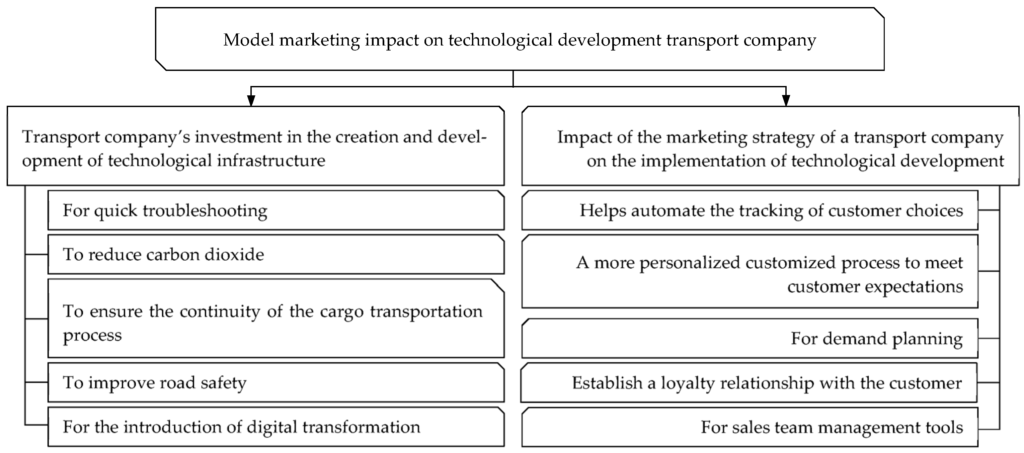A new article explores the development of road transport technology through a marketing lens. It analyzes and evaluates road transport companies’ technological development alternatives, focusing on how marketing influences the development and competitiveness of their services.
The structural and technological development analysis identified the marketing factors shaping the technological development process. A review of scientific literature revealed that technology development is driven by consumer demand, digital transformation, data availability, and complex logistics supply chain processes. An expert evaluation questionnaire was compiled to isolate the criteria for how marketing factors impact road transport technology development and the quality of a transport company’s vehicles.

Based on expert assessments and calculations, the primary criteria for the impact of a transport company’s marketing strategy on technological development should be prioritized as follows, with the top five being:
- Automating the tracking of customer choices.
- Personalizing processes to meet customer expectations.
- Enhancing demand planning.
- Establishing customer loyalty relationships.
- Providing tools for sales team management.
The research demonstrates that a transportation company’s marketing strategy elements are closely tied to personalized customer expectations and automated customer choice tracking capabilities. Findings include quick response to troubleshooting, CO2 reduction measures, ensuring process continuity, improved safety, and demand planning.
The scientific novelty of the article lies in identifying new elements of the interaction between marketing and technology development in transport companies. The discussion section addresses the study’s limitations and highlights areas that remain unexplored or insufficiently analyzed, which could be significant for the researched topic. It underscores the importance and role of artificial intelligence in technological processes, particularly in customer service. Additionally, it explores the concept of CO2 emissions, the management of these emissions to achieve energy efficiency, and the environmental aspects related to marketing activities.
